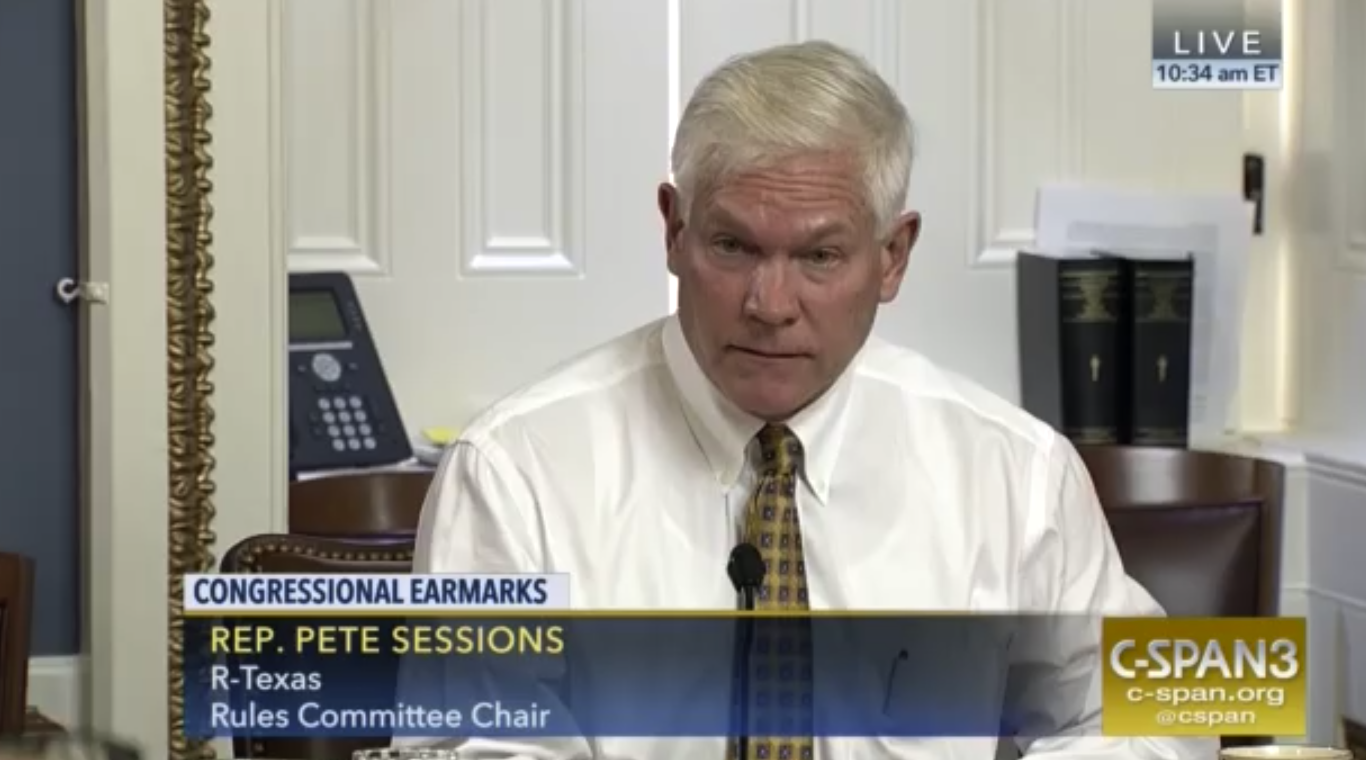One of the biggest congressional races to watch in order to determine if a blue wave is coming in the 2018 midterm elections will be the one that takes place in Texas’ 32nd district. Rep. Pete Sessions (R-TX) has been serving in congress since 1996 and moved to live in the 32nd after the 2010 redistricting made the one he formerly represented more Democratic. Since then, he has won with increasing margins, and in 2016 Democrats didn’t even field a candidate to challenge his re-election.
Pete Sessions is a leader among Republicans in the House, serving as chair of the National Republican Congressional Committee in 2010, when the GOP won sweeping victories to gain a majority. In 2014, he was briefly a candidate for House Majority Leader, but eventually stepped aside for Rep. Kevin McCarthy. Sessions has been a member of the Tea Party Caucus and the Republican Study Committee, but according to Alex Isenstadt, is trying to walk a fine line about the current president.
In an interview this week, Sessions, who was first elected in 1996, was careful not to overtly criticize the president — he praised some aspects of Trump’s record, including on national security. But the Texas congressman pointedly declined to say whether he’d campaign as an ally of the president, who narrowly lost Sessions’ North Dallas district in 2016. And he appeared to concede that some in the business-friendly area — which is home to a number of prominent country club-style Republicans, including former President George W. Bush — have soured on the bombastic commander in chief.
The 32nd district in Texas encompasses the suburban area north of Dallas. As Isenstadt notes, it is home to prominently “country club-style Republicans,” including former President George W. Bush. On the other hand, the demographics of the district are changing. It’s only 53 percent white, while Latinos make up 24 percent of the population and African Americans 14 percent.
But perhaps the most interesting thing to note about this district is that it went for McCain by 11 points in 2008 and for Romney by 15. Then in 2016, Hillary Clinton won the district by 3 points. That changes the ball game.
Into that mix walks the current Democratic candidate. After not even fielding one in the 2016 election, seven people ran in the primary. Here’s an introduction to the winner of that race:

Most people know that football is big in Texas. But what you might not know is that, for wealthy white people in Texas (to say they are Christian—primarily Southern Baptists—would be redundant), Baylor football is huge. Colin Allred not only played in the NFL, he played for Baylor prior to going to law school, becoming a civil rights attorney, and working for the Obama administration. That’s quite the package.
In terms of the issues, the race between Sessions and Allred provides voters with a stark choice. Sessions supports the balanced budget amendment, voted to repeal Obamacare, opposes federal regulation of greenhouse gas emissions, voted against the Dream Act, wants to end birthright citizenship, opposes abortion, and voted against reauthorization of the Violence Against Women Act.
On the other hand, Colin Allred wants to protect Obamacare while allowing Medicare buy-in, invest in infrastructure, raise the minimum wage to $15, stands boldly in support of Planned Parenthood and women’s reproductive freedom, supports universal pre-K, and has basically incorporated the gun safety measures promoted by the Parkland students.
Perhaps you see why this race has it all:
- primarily suburban
- changing demographics
- a stark choice of liberal vs conservative positions
- candidates that reflect the changing dynamics in both parties
- the possibility of unseating an incumbent Republican leader
The 32nd district is rated R-5 by Cook Political Report, but they call the current race as a toss-up, noting that, “Multiple Republican operatives familiar with Texas polling data are convinced GOP Rep. Pete Sessions (TX-32) is, at the moment, the most vulnerable incumbent in the Lone Star State.”
Both parties are going to pull out all of the stops for this race. But it is Sessions who has the more difficult task. I’m sure that the wealthy, white, never-Trumpers are in his corner. But he could risk alienating the president’s supporters if he fails to run as his ally in Congress. For liberal Democrats, Allred is a solid candidate. But this is one case where nationalizing the race as a referendum on the current president would be a plus. In other words, the key to chalking up a win for the Democrats in Texas’ 32nd District might be Donald Trump.



